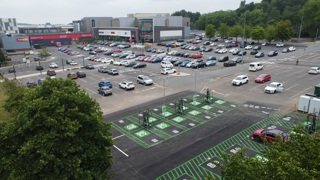Fleets have been warned that any step-change in EV battery technology could create future shocks for residual values, according to FleetCheck.
Toyota has recently said it is working on new solid state battery technology that could deliver over 900 miles of range.
The average battery range for new electric vehicles is already almost 300 miles, according to the Society of Motor Manufacturers and Traders (SMMT).
Peter Golding, managing director at the fleet software specialist FleetCheck, said the major advances in technology could present predictable effects.
Golding said Toyota’s solid state designs, CATL talking about doubling energy density and Mullen Automotive’s improved battery management to name a few, is welcome, but also creates problems.
He said: “A manufacturer who has access to better batteries is going to want to make them available as soon as possible in order to gain a competitive market advantage but this is going to affect EVs already in use.
“It won’t render them obsolete but it could make them much less attractive, especially if the new tech is not just more effective but cheaper, which is conceivable.”
Golding said that will values on current EVs are unlikely to collapse completely, there could be major reductions.
He added: “This would have a substantial impact on leasing companies too, of course, who are already being very conservative in their EV future forecasts thanks to the quite dramatic drop in values seen over the last year.
“Buying EVs and bearing the RV risk remains a risky business.
“It seems to us that there is no way around this situation.
“EVs are still a relatively new technology in a mass market sense and step changes in technology are very much a possibility but any advances will probably be a double edged sword and fleets need to factor that into their decision making.”






















Login to comment
Comments
No comments have been made yet.